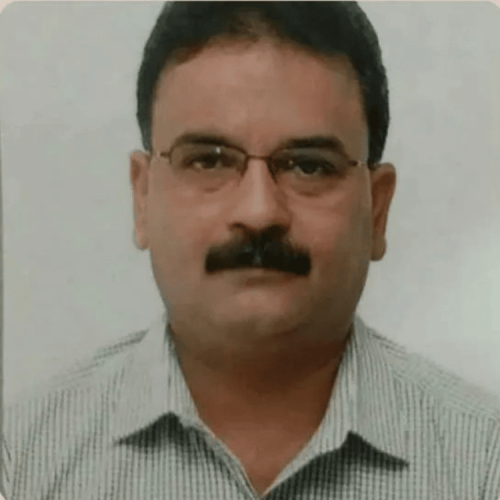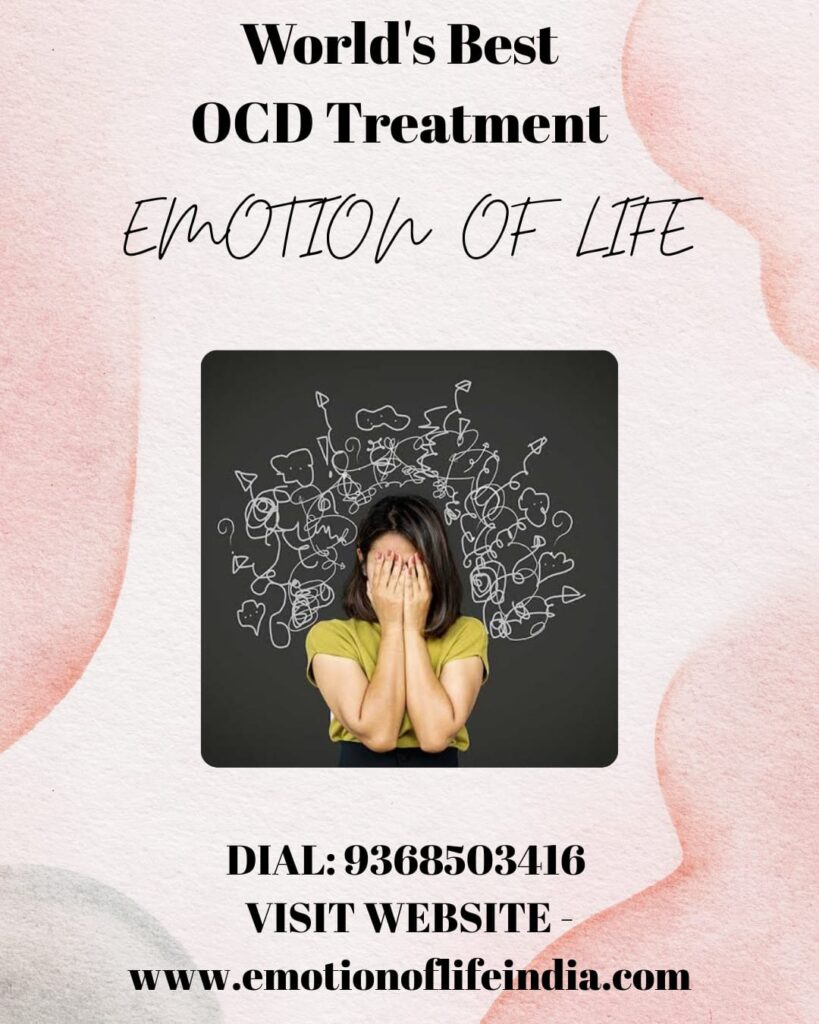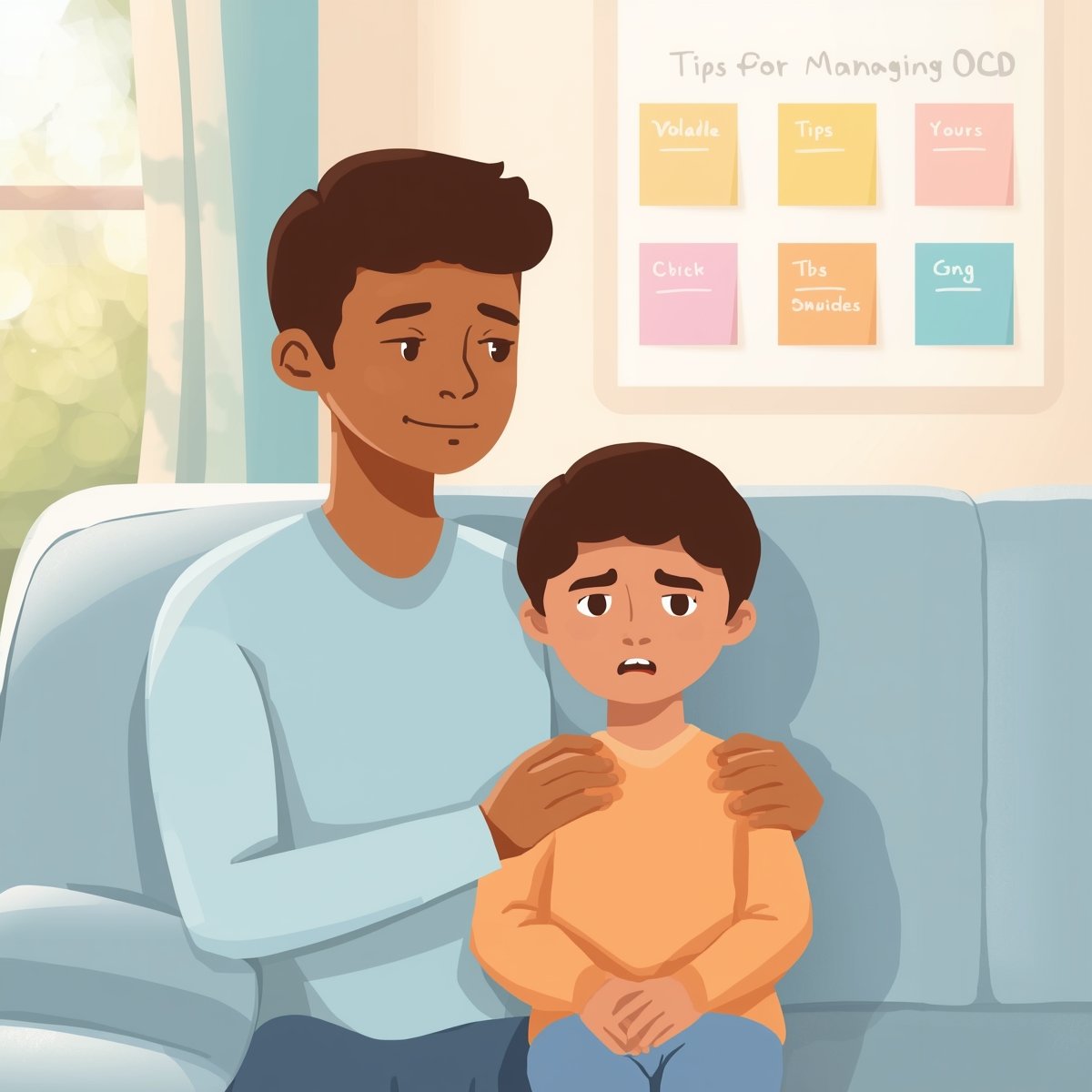OCD Treatment in Childhood | Emotion of Life
OCD Treatment in Childhood Expert, non-medication OCD treatment using CBT and ERP for children, led by Shyam Gupta. Structured therapy programs online and onsite for lasting recovery.
Understanding Childhood OCD
OCD Treatment in Childhood Obsessive Compulsive Disorder is not only an adult illness. Many children experience intrusive thoughts and repeating rituals that interfere with daily activities such as getting ready for school, doing homework, or bedtime. Untreated childhood OCD can affect self-esteem, social growth, and academic success. Early support and therapy significantly improve outcomes.
Core Features
- Obsessions: Unwelcome thoughts, fears, images, or ideas causing anxiety, e.g., fear of germs, harm to loved ones, or making mistakes.
- Compulsions: Repetitive actions or rituals in response to anxiety, such as excessive washing, checking, repeating phrases, or arranging objects.
Unlike adults, children may not recognize their fears as unreasonable, making parental and teacher observation crucial for early detection.
Why Early Treatment Matters
OCD rarely resolves on its own. Without intervention, symptoms can worsen, affecting schooling, friendships, and self-esteem. Early treatment helps:
- Reduce symptoms and teach coping skills while the child’s brain is still developing.
- Prevent the disorder from becoming chronic in adulthood.
Effective Approaches for OCD Treatment in Childhood
1. CBT with ERP
CBT with Exposure and Response Prevention (ERP) is the most effective approach. Children are gradually exposed to anxiety-provoking thoughts or situations while refraining from compulsive acts. With guidance, the child learns that anxiety diminishes naturally without rituals.
2. Parental Involvement
Parents play a critical role. They are trained not to accommodate rituals but to support resilience, reinforce efforts, and encourage practicing coping skills at home.
3. Additional Therapeutic Techniques
- Mindfulness: Helps children separate themselves from obsessive thoughts.
- Acceptance and Commitment Therapy (ACT): Focuses on values and meaningful actions instead of intrusive thoughts.
- Cognitive Restructuring: Challenges irrational fears, e.g., “If I don’t count to ten, something bad will happen.”
- Medications (if needed): In moderate-to-severe cases, SSRIs may be prescribed safely, though therapy remains primary.
Online and In-Person Options at Emotion of Life
Both online and in-person therapy sessions are available. Online ERP therapy is effective for families living far from treatment centers or seeking privacy, often as effective as in-person sessions.
Steps to Progress OCD Treatment in Childhood
- Most children show improvement within 4–6 weeks.
- Protection against relapse achieved within 3–6 months.
- Regular practice along with intermittent sessions prevents relapse.
- Children regain social confidence, reduce rituals, and refocus on schoolwork.
FAQs: OCD Treatment in Childhood at Emotion of Life
Q1. What are the common signs of OCD in children?
Repetitive behaviors like excessive handwashing, checking, arranging toys, or mental rituals. Children may show extreme distress over intrusive thoughts. Specialists at Emotion of Life help parents identify early signs and intervene effectively.
Q2. How is OCD in children treated at Emotion of Life?
Child-focused CBT and ERP are used to manage obsessions and compulsions. Treatment includes parental guidance, coping strategies, and structured exercises without medication.
Q3. Is OCD treatment in childhood different from adults?
Yes. Age-appropriate methods, engaging therapy, and parental involvement are necessary. Emotion of Life customizes plans for each child.
Q4. Can early treatment help prevent long-term OCD problems?
Yes. Early CBT/ERP significantly reduces symptoms and prevents OCD from becoming chronic, improving long-term outcomes.
Q5. Do parents need to be involved in the child’s OCD treatment?
Yes. Parental participation ensures consistent progress during and outside therapy. Parents learn how to support exposures and manage compulsions at home.
Conclusion
Childhood OCD can feel overwhelming, but early recognition and structured therapy make lasting recovery possible. CBT and ERP, combined with professional guidance and family support, help children regain freedom from obsessions and compulsions, returning to a fulfilling childhood.
At Emotion of Life, led by Shyam Gupta, we offer structured, evidence-based therapy without medication. Online and onsite options ensure access and privacy, empowering children to overcome OCD and thrive.
Ready to help your child regain control? Contact Emotion of Life today to schedule a free consultation.
Call: +91 9368503416
Visit: www.emotionoflife.in
Email: info@emotionoflife.in
Book Now | Review | OCD Types | Meet Our Experts | Success Stories | Contact Us








